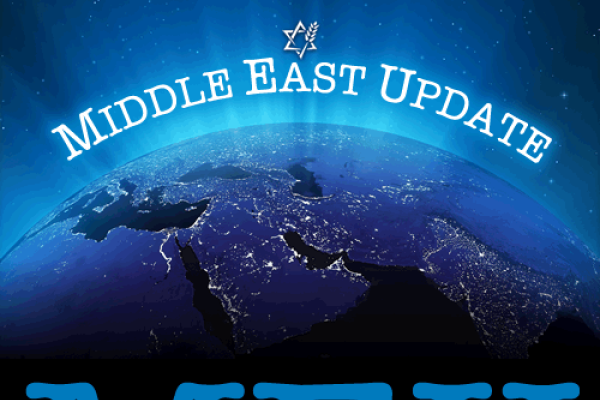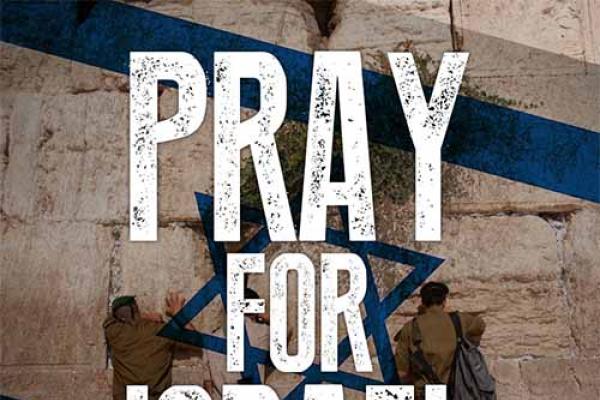When Paul talks about the “one new man” in Ephesians chapter 2, it can be tempting to believe that every Believer is to worship in the same way. In the context of Scripture as a whole, specifically Galatians 3:26–28, we see the idea of “unity with distinction” between Jewish and Gentile Believers emerge. Paul tells the Galatians that “there is neither Jew nor Greek,” which at first glance appears to support a homogenous sameness. However, it’s important not to overlook the very next phrase of verse 28, which says there is also “neither male nor female.” A husband and wife are “one” but maintain their distinct identities, each with different abilities and contributions to the marriage.
Unity between Jewish and Gentile Believers in Jesus doesn’t eliminate the distinctness of the other. We each have separate God-given identities and roles, and we cannot do or be that of the other. This removes the idea of either group claiming the other should look like, act like or practice their faith “like us.”
In the early Church, faith in Jesus as the Messiah was clearly a part of Judaism. Peter required a vision from the Lord to assure him that God was calling him to speak about the Messiah to Cornelius and his household, who were not Jewish. All of them believed and received the Holy Spirit. (See Acts 10.) As the Gospel spread to the non-Jewish world, the apostles and elders met to discuss whether or not Gentile Believers needed to first convert to Judaism. This “Jerusalem Council” decided no and outlined only a few things non-Jewish Believers should abstain from as requirements to worship alongside of the Jewish people. (See Acts 15.)
As the body of Messiah grew to be composed of mostly Gentile Believers, the situation changed.
In the third century, which by then the body had become composed of mostly Gentile Believers, the ruler Constantine adopted a form of Christianity. He believed that because, by and large, the Jewish people had rejected Jesus as Messiah, God had rejected them in favor of the Gentile Church. (This is known as Replacement Theology.) Constantine rejected the Hebrew calendar in favor of the Gregorian and reassigned different dates to holidays honoring Jesus’ life and ministry, emphatically separating faith in Jesus from its Jewish foundation. That’s why Passover and Easter (Resurrection Sunday), which the Bible reveals are divinely connected, oftentimes don’t line up on our calendars.
Sadly, today, the question addressed at the Jerusalem Council has been reversed. Many Christians believe – or at least expect – that a Jewish person who comes to believe Jesus is the Messiah should set aside their Jewish identity and assimilate into the modern Church. The biblical principle of unity with distinction says otherwise. In fact, the Bible indicates that God has given each group – Jewish and Gentile Believers – specific and different assignments.
In Genesis 12:3, God told Abraham that, through his descendants, all the families of the Earth would be blessed. God gave Israel this role to play on Earth – to be a blessing to all. This prophecy is epitomized in the coming of Yeshua, the Messiah who came from the Jewish people. Likewise, the Holy Spirit, now available to all who confess Yeshua as Lord, was first poured out on the Jewish followers of Jesus in Jerusalem. We also see evidence of Jewish people’s contributions to society. Representing only two percent of the world’s population, Jewish people account for 22 percent of all Nobel Prize winners.
In Romans 11:26, Paul informs the Gentile Believers of Rome that they have been grafted into the faith of Israel like a wild olive branch is grafted into a natural tree and have been given the particular role of provoking Israel to a holy jealousy over their relationship with the God of Israel.
One might wonder if these assignments were only for the early Church. No. Paul says it plainly in the same chapter of Romans: “The gifts and the calling of God are irrevocable.” They don’t change over time. (See Romans 11:29 NKJV.)
Yeshua (Jesus,) the Messiah, brings us together, united in our faith in Him, as part of the family of the one true God, yet retaining distinct heritages and responsibilities. We each have our roles to play in the world, sharing the love and salvation of the God of Israel who “so loved” the whole world that He gave His only Son so that whoever believes in Him – Jewish or non-Jewish – would not perish but have eternal life (See John 3:16.) And we each have our roles to play in relation to one another.
For more on this topic, watch Jewish Voice Vice President of Global Ministry Affairs Ezra Benjamin’s conversation with David Blease, Teaching Pastor of Gateway Center for Israel.












